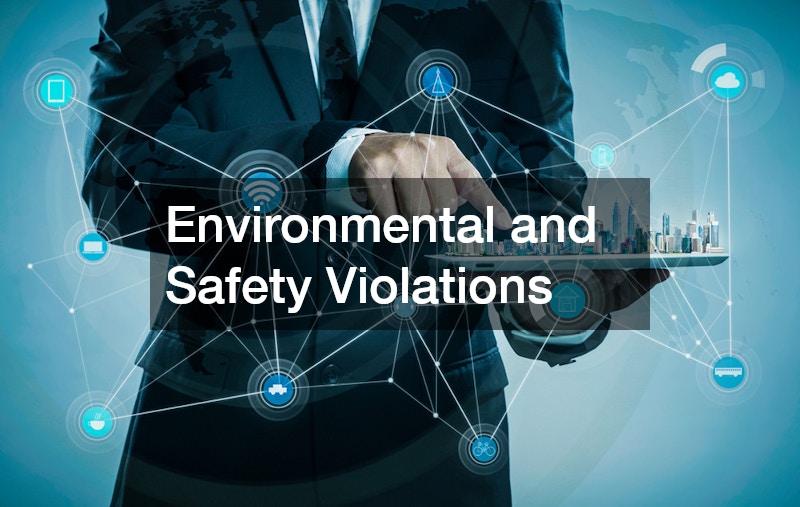Running a business is an exciting journey filled with opportunity, innovation, and growth — but it’s not without risks. In today’s complex regulatory environment, even the most diligent entrepreneurs can find themselves facing unexpected legal challenges. From contracts and taxes to data privacy and financial compliance, understanding the common legal pitfalls can save your company from costly disputes, fines, or even bankruptcy.
This comprehensive guide explores 12 of the most common legal issues businesses can face—and, most importantly, how to avoid them. By staying proactive, working with the right professionals, and implementing smart strategies, you can protect your company’s future and focus on what truly matters: growth, stability, and success.

1. Contract Disputes
Contracts are the foundation of every successful business relationship. Whether you’re dealing with clients, vendors, or employees, clearly written agreements help define expectations and protect both parties. Unfortunately, many business owners overlook fine print, rely on verbal agreements, or use poorly drafted templates from the internet—mistakes that can lead to costly disputes.
A contract dispute can stem from unclear terms, non-performance, or disagreements about deliverables. To avoid this, ensure all contracts are written by or reviewed by legal professionals who understand your industry. Be precise about payment terms, deadlines, scope of work, and dispute resolution processes.
Additionally, keep all records of communications and amendments. Digital tools and cloud storage can help you track and secure documents easily. Transparency and proper documentation are your best defenses if a disagreement arises.
When in doubt, consult with experienced business lawyers who can craft legally sound agreements that minimize risks while protecting your interests.
2. Employment Law Violations
Hiring, managing, and terminating employees involves navigating a maze of local, state, and federal regulations. Mistakes here can expose your company to lawsuits, fines, and reputational damage.
Common employment law issues include wrongful termination claims, wage and hour disputes, workplace discrimination, and harassment allegations. Even small businesses must comply with anti-discrimination laws and provide safe working conditions.
One effective way to prevent these problems is through clear HR policies and consistent enforcement. Maintain proper documentation for every employee action—especially during hiring and termination. Provide regular training for managers and staff to ensure compliance with labor laws.
For ongoing guidance, collaborate with business lawyers who specialize in employment law. They can review your employee handbooks, advise on disciplinary procedures, and ensure your contracts meet current legal standards. Proactive legal planning today prevents costly litigation tomorrow.
3. Data Privacy and Cybersecurity Risks
In a digital world, protecting your company’s and customers’ data is no longer optional—it’s a legal requirement. Cyberattacks, data breaches, and unauthorized access can result in severe financial penalties and loss of trust.
Modern privacy laws, such as GDPR or U.S. state data regulations, hold companies accountable for how they collect, store, and use personal information. Businesses must ensure data security not just to maintain trust but also to remain compliant.
Implementing managed IT services is one of the best ways to safeguard sensitive information. These providers monitor systems, detect breaches early, and ensure your business follows best practices for cybersecurity and data compliance.
Additionally, create internal data policies that outline how employees handle passwords, emails, and confidential information. Encrypt data, perform regular backups, and educate your team about phishing scams.
Remember: cybersecurity isn’t just an IT issue—it’s a legal obligation tied to consumer protection laws.

4. Intellectual Property Infringement
Your brand, logo, and creative work are valuable assets. Protecting them from infringement—and ensuring you don’t violate someone else’s rights—is crucial. Intellectual property (IP) law covers trademarks, copyrights, patents, and trade secrets, each with its own legal framework.
Businesses often face issues when they fail to register trademarks, accidentally use copyrighted material, or neglect to secure IP rights in contracts with designers or freelancers. Such oversights can lead to lawsuits or loss of brand identity.
Before launching a new product or marketing campaign, conduct an IP audit. Make sure your company name, logo, and slogan are available and properly registered. If your company relies on innovation, consider patent protection for unique processes or products.
A solid IP strategy protects you from infringement claims and ensures your creative assets remain yours alone.
5. Tax Compliance Issues
Taxes are one of the most complex and heavily regulated aspects of running a business. From payroll taxes to income and sales taxes, compliance mistakes can trigger audits, penalties, and interest charges.
Many entrepreneurs underestimate the importance of proper bookkeeping and documentation. Failing to pay estimated taxes, misclassifying expenses, or mixing personal and business finances are all common mistakes that can lead to legal trouble.
To stay compliant, work closely with a qualified tax consultant. They can help you navigate deductions, prepare accurate filings, and ensure your business meets all state and federal obligations. Regular reviews of your financial records will help catch issues before they escalate.
Automation tools also make it easier to track receipts, manage invoices, and organize tax documentation. By combining expert advice with good recordkeeping, you can avoid unpleasant surprises during tax season.
6. Financing and Debt Disputes
Access to capital is essential for business growth, but it can also create legal and financial challenges. Misunderstood loan terms, missed payments, or disputes with lenders can quickly spiral into lawsuits or credit problems.
If you’re seeking funding, understand the difference between personal and business liability. Never sign agreements without reading every clause, especially regarding repayment schedules, interest rates, and collateral requirements.
Exploring a local business loan can be a smart option because community banks and lenders often offer more flexible terms and personal service than national institutions. They may also have programs designed for startups or small enterprises.
To avoid disputes, keep communication open with your lender and document every transaction. Financial transparency builds trust and helps prevent misunderstandings that might escalate into legal trouble.

7. Accounting and Financial Mismanagement
Poor financial management can quickly lead to legal consequences, especially if it involves inaccuracies in financial statements or unpaid debts. Whether intentional or accidental, misreporting finances can trigger audits, fines, or even criminal charges in severe cases.
To protect your business, invest in proper accounting software and oversight. Hiring professional accountants ensures your books are accurate, compliant, and transparent. Accountants not only handle bookkeeping but also provide strategic financial planning to keep your operations running smoothly.
They can also help identify potential financial risks before they escalate—such as cash flow shortages or overextended credit.
Regular internal audits and quarterly reviews are crucial for ensuring compliance and detecting irregularities early. By maintaining accurate records and professional oversight, you’ll avoid the legal headaches that come with poor financial management.
8. Advertising and Marketing Law Violations
Promoting your products or services is essential—but misleading advertising, false claims, or copyright misuse can lead to legal consequences under consumer protection laws. Every advertisement must be truthful, supported by evidence, and free of deceptive wording.
Even something as simple as a business name or sign can cause legal trouble if it infringes on another company’s trademark. Before launching a new marketing campaign or installing a business sign, confirm that your branding is original and compliant with local signage ordinances.
Additionally, ensure your marketing materials follow data protection laws. If you collect customer information through promotions or emails, you must clearly disclose how that data is used and offer opt-out options.
Work with marketing and legal professionals to review your materials before publishing. Ethical, transparent advertising not only avoids fines—it builds customer trust and long-term loyalty.
9. Loan Defaults and Debt Recovery
Sometimes, even well-run companies face cash flow problems due to market changes, supply chain issues, or delayed payments. When this happens, defaulting on loans can lead to serious legal and financial repercussions.
If you find yourself in this position, communication is key. Contact your lender before missing payments—many institutions offer restructuring options or temporary relief to help you recover.
For flexible and community-oriented options, consider seeking a loan from credit union programs. Credit unions often provide more personalized support, lower interest rates, and understanding when a business encounters temporary financial hardship.
If debt becomes unmanageable, consult financial advisors or attorneys early to explore alternatives before litigation or bankruptcy becomes necessary. Early intervention can often prevent severe consequences and help your business regain stability.

10. Environmental and Safety Violations
Many businesses underestimate how environmental laws and safety regulations apply to them. Even minor noncompliance—like improper waste disposal or unsafe workplace conditions—can result in hefty fines and legal action.
To stay compliant, familiarize yourself with both federal and local regulations that affect your operations. Conduct regular inspections and keep detailed records of safety training, equipment maintenance, and waste management procedures.
Implementing risk management solutions can significantly reduce exposure to environmental or workplace safety violations. These solutions identify potential hazards, assess their impact, and create policies to mitigate them.
By proactively managing risks, your company can maintain a safe, compliant workplace while demonstrating responsibility to employees, regulators, and the community.
11. Bankruptcy and Financial Insolvency
Despite best efforts, some businesses face financial distress due to market downturns, debt, or unexpected losses. When debts become overwhelming, understanding your legal options is crucial to protect both your company and personal assets.
One option for complete liquidation and debt relief is Chapter 7 bankruptcy, which allows businesses to discharge most debts and close operations in an orderly, legal manner. While it can provide a clean slate, it also means the end of the current business entity.
Alternatively, reorganization through other bankruptcy chapters may allow your company to continue operating while restructuring debt. Consulting with bankruptcy attorneys early gives you the best chance of preserving what you’ve built and minimizing damage.
Financial challenges don’t have to spell disaster if addressed proactively. Seek legal and financial guidance before the situation becomes critical to explore alternatives like refinancing or debt settlement.
12. Compliance and Licensing Issues
Every business must comply with industry-specific regulations, licenses, and permits. Operating without proper authorization can lead to fines, shutdowns, or loss of reputation.
For example, restaurants need health permits, contractors need state licensing, and financial firms require compliance with strict federal laws. Even small oversights—like missing renewal dates—can cause major disruptions.
Partnering with a home construction company may require special local permits, while opening a retail store demands zoning and signage compliance. Regularly reviewing your licenses and maintaining documentation keeps you ahead of potential violations.
If your business expands into new locations or industries, check for additional permits or tax requirements. Proactively managing compliance shows professionalism, builds customer trust, and safeguards your operation against unnecessary legal battles.
How to Stay Legally Protected: Building a Compliance-First Business
Avoiding legal trouble isn’t about luck—it’s about building systems that prioritize compliance, transparency, and accountability. Successful companies understand that legal health is just as important as financial performance.
Here are a few overarching strategies to keep your business safe:
-
Consult Professionals Regularly – Work with experienced business lawyers, accountants, and tax consultants to identify risks early.
-
Document Everything – Keep thorough, organized records of contracts, transactions, and communications.
-
Educate Employees – Regularly train your staff on compliance, safety, and ethical standards.
-
Embrace Technology – Use managed IT services, accounting software, and secure storage systems to minimize errors and ensure transparency.
-
Plan for Growth – As your company expands, revisit your policies, contracts, and legal documents to ensure they remain relevant and compliant.
By taking a proactive approach, you create a culture of responsibility that protects your brand and encourages long-term success.
Legal challenges can strike any company, regardless of size or industry. The difference between thriving and struggling often comes down to preparation. By understanding the 12 legal issues businesses can face—and putting preventive measures in place—you can navigate today’s complex business world with confidence. From managing taxes and contracts to securing intellectual property and preventing financial missteps, every step you take toward compliance strengthens your foundation. Running a business will always come with risks, but with foresight, professional partnerships, and smart decision-making, you can focus on growth instead of litigation. Your company’s future depends not just on innovation and strategy—but on the peace of mind that comes from knowing you’re legally protected.



